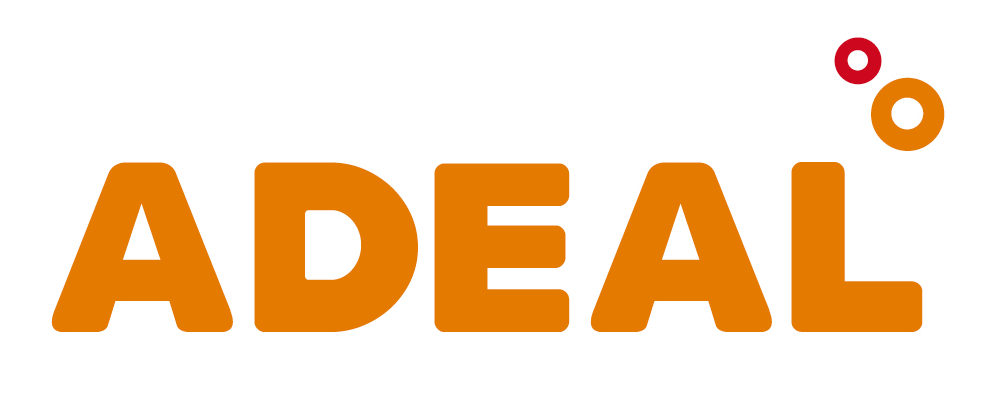
QuickBooks Online is a cloud-based software with a monthly subscription, whereas QuickBooks Desktop is installed locally and has an annual license pricing scheme. QuickBooks Desktop is more traditional accounting software that you download and install on your computer, while QuickBooks Online is cloud-based accounting software you access through the internet. For the Desktop version, you pay an annual fee starting at $549.99 per year, and the cloud-based option starts at $15 per month.
Intuit provides support and updates for three years from the date of purchase. If you opt to do monthly bank transactions that will run you roughly $120 additional each year, and payroll is an additional $39.99/month, for a total per month cost of $53.40. Unless you need more frequent updates, or your business undergoes a rapid expansion, QuickBooks Pro is much more cost effective on a per-month basis. You could also, ostensibly, keep QuickBooks Pro forever, you just won’t be getting regular updates or support after the three year period. Every business is unique, and there may be instances where QuickBooks Desktop may be a better fit.
For both cases, I strongly encourage you to find or buy a migration checklist. There are many cases where it’s to your benefit to learn how to approach and resolve a task. QuickBooks migration is (hopefully) something you do once, and there is no benefit for you to spin your wheels for days trying to make this work.
Can I switch from QuickBooks Online to QuickBooks Desktop?
Intuit often offers discounts and incentives for purchasing it for set blocks of time, though for the purposes of this article, I’m only covering its full regular price. Hosting your QBDT file on the cloud is available for all editions of QuickBooks Desktop and is available through a variety of providers. Like its desktop counterpart, there are multiple editions of QuickBooks Online aimed at serving different purposes. Unlike QuickBooks Desktop, QBO is only available in a subscription-based format regardless of the edition you choose. Thanks to the cloud, you can also access QBO from the convenience of your smartphone or tablet. This means you can check in and manage your books from anywhere in the world, whether you’re relaxing on a beach in The Bahamas or enjoying a hot chocolate at a ski lodge.

The other kicker is that while QuickBooks Desktop could be cheaper in the long run, many small businesses may not have the cash flow to pay a lump sum subscription (especially if they need additional user licenses). QuickBooks Desktop is better for small to large-sized businesses with complex accounting needs requiring more customizable features. Ultimately, your specific business’s size, type, and needs are the real deciding factors. Read our full QuickBooks Online and QuickBooks Pro reviews for a more in-depth look at each software’s features, pricing, and use cases.
Both options, however, are working to reduce long hold times on the phone by now offering a callback feature. With QuickBooks Desktop, you can set recurring invoices, send payment reminders, send batch invoices, and track invoices, but you’ll miss out on many of the other modern, cloud-based automations that QBO provides. The main difference between QuickBooks Online and QuickBooks Desktop is that Why Are Notes and Footnotes Important in Accounting Chron com QuickBooks Online is cloud-based accounting software, and QuickBooks Desktop is locally installed. Both versions offer automatic syncing with your bank so you can categorize transactions. Add payroll to QuickBooks Online starting at $45 per month, or to Desktop starting at $50, plus $2 per employee, per month. To be honest, when QuickBooks Online was first introduced, the product was “ahem” …bad.
QuickBooks Online and QuickBooks Desktop starting plans and prices
If you’re interested in QuickBooks Online, you should check out our QuickBooks Online versions comparison to help you decide which is best for you. If you prefer QuickBooks Desktop, read our comparison of QuickBooks Desktop products to help you pick the right solution. Julie is a dynamic professional with over 16 years of rich experience as a VDI and Application Hosting expert. On the weekend, you will find her hanging out with her family or surfing around the North Shore of Oahu. Yes, you can convert your QuickBooks Online data to QuickBooks Desktop using Intuit’s conversion tools. It’s important to note that the process may not transfer all data and features, so thorough preparation and backup are advised before switching.
- QuickBooks Enterprise does sync with the cloud, but is accessed from your computer’s desktop and is available offline or behind a firewall.
- With QuickBooks Online, users receive many of the same great features while gaining the mobility of cloud-based software.
- There are over 200 options instead of the 650-plus to its cloud counterpart.
With QuickBooks desktop, you need to be in the habit of regularly backing up your software. To speed up product configuration, you can opt to use the default account map that is provided with the application. You also have the choice of importing goods and services to the application in order to prevent the need to re-enter the results. QuickBooks Web features are more designed than the equivalent features included in QuickBooks online. While not web-based, QuickBooks desktop can be hosted online for more easy access if needed.
What is QuickBooks Online?
Offers four plans to accommodate a range of businesses with different needs; each plan limits the number of users, though. Many or all of the products featured here are from our partners who compensate us. This influences which products we write about and where and how the product appears on a page. However, Intuit’s push for its QuickBooks Online software and discontinuation of its Desktop offering in the UK has caused users to worry about possible sunsetting.
For QuickBooks desktop, there may be some difference in online consumer feedback depending on one of the three models you’re looking at—Pro, Premier, or Business. Bear in mind that if you plan to host QuickBooks desktop, there would be an extra charge. Both rates are based on an annual charge, making it more economical than QuickBooks online. Then, for QuickBooks Business, pricing would be based on a couple of considerations. Next, if you prefer Business for Hosting, you would have a recurring membership fee.
QuickBooks Online vs Desktop: The Ultimate Guide
Both QuickBooks online vs desktop are competent applications with efficient accounting features. QuickBooks desktop provides the same service services seen in QuickBooks online, including video guides, on-demand webinars and a range of training options. Both apps often have a simple configuration process, so you can be up and running in a very short time. QuickBooks online ranks a lot higher than QuickBooks desktop for Ease of Use with 4.25 points out of 5, relative to QuickBooks desktop’s poor ranking of 1.88 out of 5.
With QuickBooks Online, users receive many of the same great features while gaining the mobility of cloud-based software. QuickBooks Online is easier to use and has more automations, more integrations, and better invoicing. The downsides are the lack of sales orders, lead management, and other complexities that loyal Desktop users may miss (such as customizable letter templates, a built-in calendar, and even spellcheck). QuickBooks Enterprise is designed for large businesses or small enterprises and starts at $1,340/year.
One user noted that it’s easy to add vendors and customers and share files with their bookkeepers, while another commented that the bank account reconciliation and invoicing features are excellent. However, some complained that QuickBooks Online can’t manage multiple companies in a single account and that it lacks enhanced inventory features, such as assembly management. QuickBooks Online has a slight advantage over QuickBooks Desktop in terms of invoicing because of its ability to calculate sales taxes automatically to apply to an invoice based on the customer address. This feature is particularly useful if you sell and ship products out of your state.
Intuit has partnered with Webgility, an ecommerce accounting solution, to help small and medium-sized businesses save time, ensure accuracy, and make data-driven decisions to boost growth. QuickBooks Online offers several features that are not available in the desktop version. In conclusion, the choice between QuickBooks Online and QuickBooks Desktop comes down to individual business needs. By understanding the unique offerings of both, CPAs can make well-informed recommendations to their clients, ultimately enhancing their accounting processes and business efficiency.
QuickBooks Online vs Desktop at a Glance
Since QuickBooks Online is cloud-based and doesn’t require installation, it’s the clear winner in terms of ease of installation. Moreover, QuickBooks Online is generally easier to use and navigate than QuickBooks Desktop because it has a more streamlined and intuitive user interface. Both the online dashboard and mobile app, with their clear and straightforward graphics, are remarkably easy to understand and use.Conversely, QuickBooks Desktop was designed with accounting professionals in mind. It has a flowchart-style menu, a customizable user interface, and shortcuts for frequently used features. The assisted migration offer is eligible to Desktop customers that are migrating their data and setting up QuickBooks Online.
